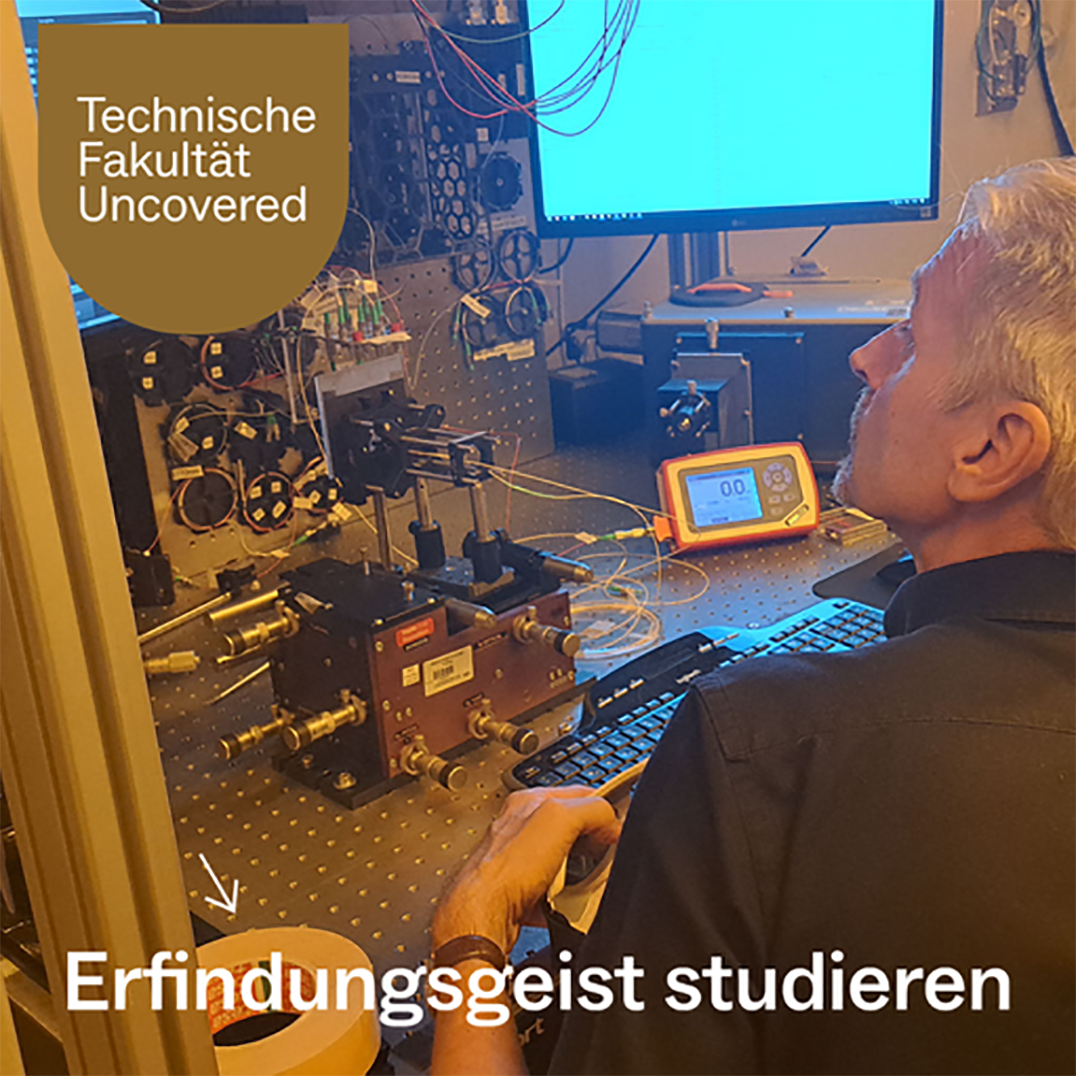News & Press
"Technische Fakultät uncovered" with Hans Zappe
In an interview, livMatS researcher Hans Zappe gives insights into his work

Each week, the series "Technische Fakultät uncovered" introduces a professor from the Faculty of Engineering of the University of Freiburg. The professors give an exciting insight into their work as scientists and teachers and also reveal one or two secrets about themselves – this time: Hans Zappe, professor at the Department of Microsystems Engineering and Full Professor of Micro-optics.
Mr. Zappe, what do you associate with microsystems engineering?
Hans Zappe: When Apollo 11 flew to the moon in 1969, the entire space capsule computer had 12,300 transistors and three gyroscopes the size of tennis balls. Today, your smart phone has about 12 billion transistors and micro-gyroscopes smaller than a rice grain. Plus it has ultra-miniaturized eyes (the micro-cameras), ears (the microphones), mouths (the micro-loudspeakers), skin (the micro-fingerprint sensor) – and best of all, you can stuff the whole thing into your back pocket. What made all this possible? Microsystems Engineering of course: Faster, better and lots smaller!
What is your main field of research and why is it so exciting for you?
Optics and photonics, the engineering of photons: It’s incredible what we can do with light and it gets even more exciting when we get smaller. Lasers the size of salt grains; tiny cameras that can see inside the body; hair-sized fibers that send terabytes of data per second… even I find it mind-boggling sometimes.
What do the students learn from you and which aspects are particularly important to you?
My students think they are learning electronics and photonics but they are actually learning to think, breathe, and dream like engineers. Once you start morphing into an engineer, the whole world begins to look different and it’s that pervasive engineering thinking I want you to learn.
What advice would you give to students at the beginning of their studies?
I won’t lie, engineering is hard. So bite the bullet and get the basics down pat right from the start: the math, the physics, the chemistry, all of it. Because with those vital tools under your belt, every new skill you acquire later will help you realize that engineering is also really exciting.
What are the career prospects for graduates?
It is said that politicians may run the world, but it’s the engineers who make the world work. The world may not need more politicians, but it definitely needs more engineers.
What is your motto for teaching and research?
Find the wicked problems which are relevant for humanity and attack those. After all, if an engineer isn’t trying to do something impossible, she’s probably bored.
What do you like best about the Faculty of Engineering?
Have you ever noticed how engineering departments have this buzz, this energetic vibe, this constant ripple in the space-time continuum that results from really smart people trying to do really outrageous things together? You haven’t? Then you haven’t been to the Faculty of Engineering.
What you think students should know about you?
There is this widespread perception that engineers are super nerdly, socially inept, emotionally awkward misfits with the communication skills of a soldering iron and an aptitude for interpersonal interactions at the level of a chimpanzee using grass tools to coax ants out of an anthill. I’m just like that ;-) It’s amazing how humans are natural engineers. Watching my five year old daughter attack the wicked problems in her world using detailed analysis and creative engineering solutions is one of my greatest pleasures. She just needs to work on her maths more…
